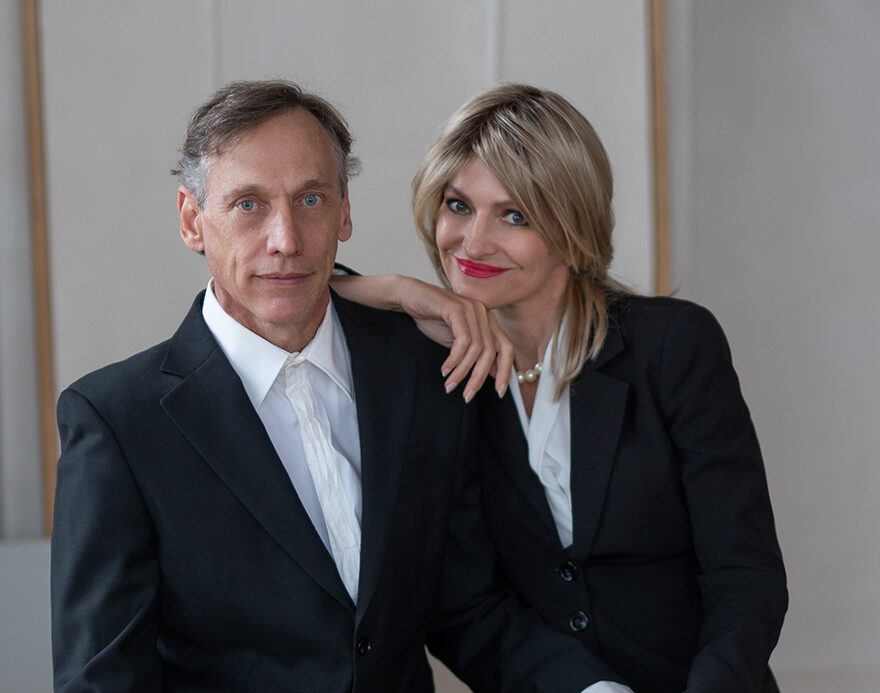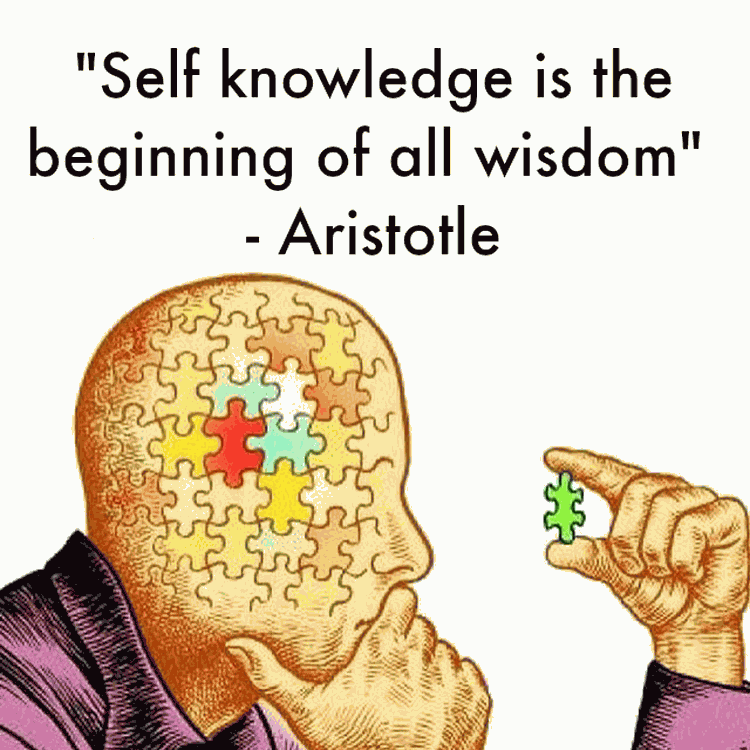Discover How a Lack of Self-Knowledge and Understanding Destroys Relationships
A lack of self-knowledge makes us vulnerable to making critical mistakes in our relationships out of ignorance. One of the most important things we need to understand about our relationships with others (inter-personal) is that they are very much an extension of our relationship with ourselves (intra-personal). It’s not just true that the better we know and understand ourselves, the better we will understand others. But until we are able to fully accept, appreciate, and love ourselves exactly as we are, we will not be able to accept, appreciate, and love others for who they are, because we simply haven’t figured out how to do that yet. We can only ever love another person to the same degree that we love ourselves.
“To love without knowing how to love wounds the person we love.” ― Zen teacher Thích Nhất Hạnh
“Before we can make friends with anyone else, we must first make friends with ourselves.” – Eleanor Roosevelt
Defining Wisdom as the Pinnacle of Self-Knowledge
Building on this foundation, it’s essential to distinguish profound self-knowledge—or wisdom—from surface-level awareness. Wisdom is (Self) knowledge that accurately aligns with reality and how things truly work, empowering interactions and behaviors that benefit us and our life and relationships. It’s not merely knowing our fears or motivations but understanding them in the context of universal truths, such as human nature’s inherent self-serving drives or the evolutionary nature of experiencing challenges. With wisdom, we move beyond reactive patterns—triggered by subconscious wounds or misaligned expectations—to responses that foster growth and harmony. In romantic partnerships, this means recognizing that a partner’s actions reflect their own reality-aligned priorities, allowing us to engage with empathy and mutual empowerment rather than conflict. For example, if a disagreement arises from clashing needs, wisdom guides us to ask: “Does my expectation align with the reality of human nature, or is it rooted in an outdated narrative?” This alignment transforms potential destruction into opportunities for deeper connection.
Practical Reflection: Pause and journal: “In what area of my relationship do my actions or expectations misalign with reality? How might gaining wisdom here—by seeking accurate understanding—lead to more beneficial interactions?”
Understanding what drives and motivates us in great detail puts us more in control of our lives, empowering us to make healthy choices and decisions that serve us and shape our lives the way we want to live. Any emotional wounds, insecurities, fears, guilt, shame, or self-loathing that we have avoided dealing with become buried in our subconscious and forgotten about. These buried and forgotten parts of ourselves run our lives and disrupt our day-to-day reality, because any time we feel threatened, they are triggered into activity, seeking our attention so that we can work on healing them.
“Until you make the unconscious conscious, it will direct your life and you will call it fate.” – Carl G. Jung
“We meet ourselves time and again in a thousand disguises on the paths of life.” – Carl G. Jung
"We recoil at any expression in others that remind us of our own disempowerment, or exposes our own feelings of inadequacy, insufficiency and incompleteness." - Graham Burwise
Uncovering the Subconscious: How Relationships Mirror Our Inner Evolution
To understand this more deeply, consider Carl Jung’s concept of the “shadow”—the repressed or denied aspects of our personality that we deem unacceptable. In relationships, our partners often unwittingly reflect this shadow back to us, acting as mirrors for personal evolution. For instance, if you’ve buried a fear of inadequacy from childhood (perhaps tied to an identity narrative of “not being enough”), it might manifest as jealousy when your partner succeeds, projecting your inner insecurity onto them. This isn’t fate; it’s an invitation to evolve, transforming subconscious disruptions into conscious growth, cultivating wisdom.
Attachment theory, developed by psychologists like John Bowlby, further illuminates this. Our early experiences shape attachment styles—secure, anxious, avoidant, or disorganized—which influence how we form bonds. An anxious style, rooted in unmet needs (underlying insecurity, self-doubt and a lack of perceived value), might lead to clinginess or unrealistic expectations of constant reassurance, straining the relationship. Yet, relationships play a pivotal role in our evolution: They expose these patterns, offering awareness and opportunities to rewrite our self-narrative from one of limitation to empowerment. By aligning our understanding with reality, we develop the wisdom to respond rather than react.
Practically, recognizing these triggers is the first step toward healthier dynamics. Try this simple exercise:
- Identify a Recent Conflict: Think of a recent argument or tension in a relationship. What emotion arose for you (e.g., anger, withdrawal)?
_ - Trace the Trigger: Ask yourself: “What about this situation feels familiar from my past? Is this reacting to my partner, or to an old wound?”
_ - Map the Evolution: Journal how addressing this could shift your self-understanding—e.g., “By accepting my fear of abandonment, I can communicate needs without blame, fostering mutual growth.”
_ - Discuss with Your Partner: Share insights vulnerably, turning the relationship into a collaborative space for evolution.
_
Over time, as you integrate these subconscious elements, relationships become less about survival and more about shared discovery, testing the depths of your wisdom.
Key Knowledge Gaps That Sabotage Relationships
The journey to deeper self-knowledge—and ultimately wisdom—reveals specific gaps that, when unaddressed, undermine romantic relationships. These gaps, rooted in misunderstandings of human nature, perception, and personal growth, block us from evolving into partners capable of authentic connection. Here are four critical areas where ignorance creates friction, along with steps to bridge them:
- Misunderstanding Underlying Drives and Motivations: All humans are inherently self-serving, its just a reality we must accept as universal. Its not a bad thing, its just how we're wired for survival. Any time someone is being self-sacrificing, they are being manipulative, whether that be consciously or unconsciously. Along with being self serving, we're all driven by a unique set of priorities and interests that are shaped by our beliefs, our level of empowerment, interests and priorities. Expecting a partner to prioritize your priorities and interests over their own is unrealistic and breeds resentment. For example, if you expect unwavering loyalty, but instead your partner doubles down on their need for independence. The conflict that arises is not because of their “selfishness” but due to a simple conflict of interests. Relationships thrive when we accept these fundamental 'rules of engagement", and learn to accept and navigate the dynamics as mutually beneficial.
Action: Reflect on your conflicts. Ask, “Was I expecting my partner to act against their nature? How can I honor both our needs to cultivate wiser interactions?”
HINT: a win-win situation is almost always possible without the need for compromise.
_ - Misunderstanding Human Nature: The vast array of human traits and qualities are all inherently part of human nature, and they all have a valid function, from kindness to ambition, compassion to aggression. No human trait or quality can ever be eradicated in us, no matter what we do. Every person draws their behavior or expression of themselves from the same universal human nature, expressing traits differently based on their unique priorities, experiences, beliefs, priorities, situations and circumstances. A partner’s withdrawal, criticism or whatever other expression isn’t a flaw to “fix”, but rather an expression of their current self-understanding. Misjudging this as a personal failing creates disconnection and resentment. Recognizing that their behavior mirrors the same potential within you fosters empathy and patience, building wisdom.
Action: When frustrated by a partner's expression, pause and ask, “How might this behavior reflect a trait I also have, expressed differently? What belief in me needs to evolve? Am I reacting to a reflection of myself?”
HINT: if you use the words always and never in relation to your partner's expression that's triggering you, example: "They always do that" or "I never do that" then you really need to examine your behavior for your expression of that particular trait.
_ - Mistaking Superficial Interactions for Truth: Early in relationships, we often interact with a mirror of our own conditioning—our perceptions of a partner are shaped by our self-narratives and past experiences. A partner’s sharp comment might trigger your fear of rejection, making it seem like their “true” character, when in reality, you’ve drawn out a fleeting response. As we evolve, we learn to distinguish their authentic self from our projections and take responsibility for the dynamics we co-create, aligning our perceptions with reality.
Action: Next time you feel hurt, ask, “Is this about my partner’s actions, or my interpretation? What part of my self-narrative is being triggered?”
_ - Overlooking the Growth Process: Personal evolution thrives on challenges—moments when reality clashes with our expectations or beliefs. A partner’s unexpected reaction might reveal an outdated assumption (e.g. “They should always understand me”). These challenges are invitations to realign your self-understanding with reality, refining your identity narrative. Relationships are crucibles for this growth, pushing us to confront and evolve beyond limiting expectations, fostering wisdom.
Action: Journal about a recent relationship challenge. Write, “What expectation didn’t match reality? How can adjusting it help me grow closer to my authentic self?”
_
By addressing these gaps, we not only evolve ourselves but we transform our relationships from battlegrounds of misunderstanding into spaces for shared evolution, where both partners grow through mutual reflection and the cultivation of wisdom.
The more (self) knowledge and wisdom we gain and apply in our lives, the less chaotic disruptions we experience, as the lessons baked into our day-to-day experiences become less and less extreme and urgent, but instead become more and more complex, testing the limits of our wisdom. Although an increase in (self) knowledge and wisdom does translate into deeper, more fulfilling, and sustainable relationships, it does not mean that there will at any point be no more challenges. There will always be new horizons to explore in our lives, mirrored in enduring partnership, because as we grow, our challenges unlock ever greater capacity for fulfillment and satisfaction. They lead on a journey of self discovery and evolution, beginning with the gross (our expression of human nature), and leading eventually to the subtle (the deeper more spiritual aspects of our being). Although relationships can be difficult to navigate at times, know that they are a very efficient vehicle for our growth and evolution if we understand how to benefit from them.


